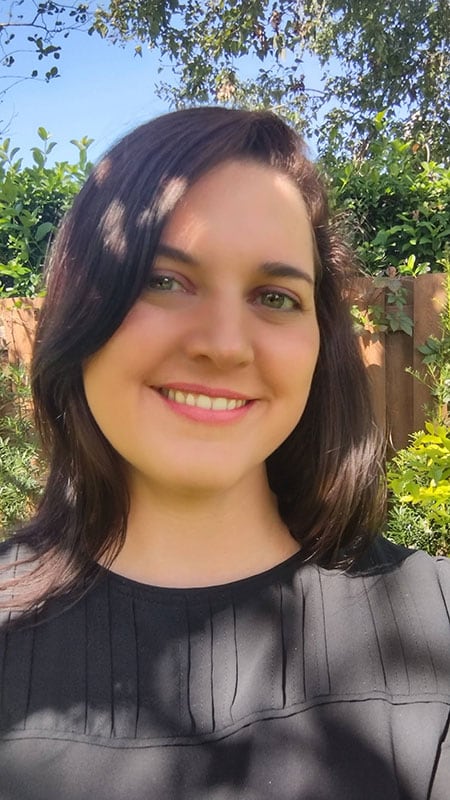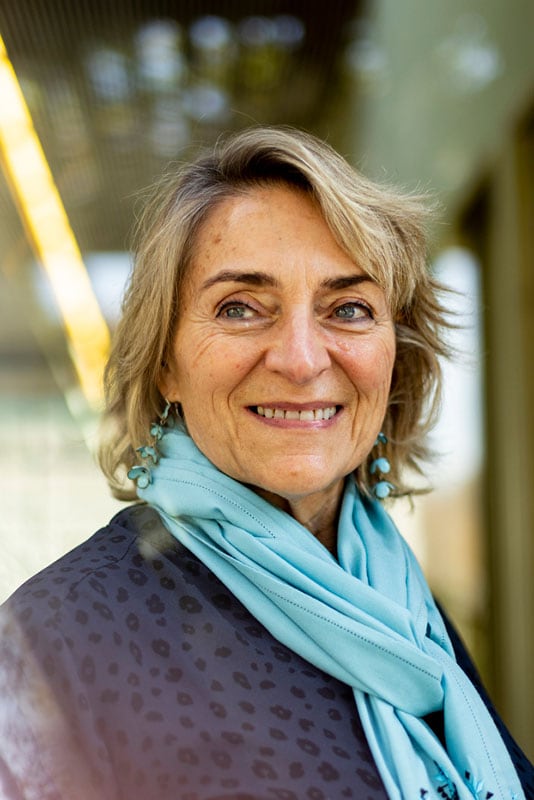#BreakTheBias in Biology (original) (raw)
74% of women believe all types of bias and discrimination are still making it difficult to find new career opportunities, according to the findings in our Global Learner Survey. This International Women’s Day, we envision a world without bias, one that is inclusive and equal, where differences are celebrated. Drs Lourdes Norman McKay & Lisa Urry are educators, authors, and biologists working towards equality in their fields. Below they share their experiences as women in science and their hopes for the future.
What was it like for you in the early stages of your career as a woman in science?
Lourdes: I would say early on it was it was rather challenging. I wouldn't say it was academically difficult for me so much as it was an emotional challenge. I ended up constantly having to prove myself, over and over again, much more so than a lot of my male peers. It’s a recurring theme I hear from other women scientists, so it's nice that I wasn't alone, but it's also disappointing that that's still often the case for women in STEM.
Lisa: When I was in graduate school in the nineties, it was tough for women. I remember there was a class of graduate students a few years behind me – 30 students, eight of which were women - that came to me for help. They all occupied the same office and there were four men in particular that were harassing them badly during the entire year.
They felt like they should be able to handle it themselves, but they ended up coming to us and we publicly acknowledged this and let everybody know it was not OK. I followed up with those four women, and I think only one or two of them are still in biology. And those four guys are all still in biology.
There were a lot of subtle biases against women, and even now women's voices don't get heard as often.
Are you seeing the same challenges for young women entering STEM now?
Lourdes: A big thing that still is facing women in STEM is the career or family versus career and family, which is disappointing. So many women are having to make decisions between those things rather than being given the chance to blend them successfully.
I said to one of my young coworkers, you shouldn't apologize so much for being a mother. And it's not that she was really apologizing for being a mother but that was the situation she was struggling with emotionally. She didn't want to it come across as “dropping the ball” now that she had a child.
I remind young women in the workplace not to be so apologetic. It's OK that your child is sick, and it's OK if you get sick, and it's OK if you take a day off. We're human beings, and we should not have to feel that we have to do twice as much to prove ourselves.
Lisa: There still is a lot of bias and it's still something we have to be really careful about. And not only against women but transgender and non-gender binary people. 50% of the students don't identify as binary genders at my school, and it's really important to have all these voices at the table.
There’s a study by a group of women researchers who were studying birds and birdsong. They found something no one had ever found before – female birds have their own songs. Usually, these research teams have been all men, who had found the male bird song but hadn’t identified any female birds. None. And it just goes to show science is not objective, it's subjective. And I think it's important for the progress of biology that we include all people and have a wide variety of voices and viewpoints at the table. We need Black biologists, we need women biologists, we need people that are not as represented.
What are you hopeful for?
Lourdes: I'm hopeful for a time when your gender is not important at all to the career that you choose. And I would say this for men and women. You know, a lot of men want to go into nursing and it's a feminized area, just like teaching is, and there shouldn't be any sort of perception as to who is a nurse who is a teacher. And there should also definitely not be any perception as to who is a scientist.
I look forward to the day when a young woman who says she's a scientist isn't told, “Well, you don't look like a scientist.” To be accepted in the discipline she's pursuing. To avoid harassment and all the challenges that so many women in STEM report and have experienced, myself included. So, I want that for my daughter and for all the young women out there who pursue this career path. And I think hearing those voices from women encourages more women to speak out about how we want to see our workplaces change; how we want to see STEM change. And that's important because it changes the culture, and it can change behavior.
Lisa: I'm hopeful for institutions supporting women as they're starting their careers, making them feel included, wanted, and that their contributions are valued because they have unique contributions to make. And this includes trans people, LGBTQ+, disabled people, BIPOC, and groups of people that have been marginalized, pushed aside – not made to feel welcome in biology and other sciences. It's really important to value all biologists and not just the ones who are established white men.
Hear more about how we can #BreakTheBias in STEM in our webinar Intentionally Cultivating STEM Identity to Promote Diversity & Inclusion featuring Dr. Lourdes Norman-McKay.
About the authors

Dr. Lourdes Norman McKay
Dr. Lourdes Norman-McKay is a professor at Florida State College Jacksonville, where peers and students recognized her with the Outstanding Faculty Award. After earning a degree in microbiology from the University of Florida, she completed a PhD in biochemistry and a postdoctoral specialization in microbiology and immunology at the Pennsylvania State University College of Medicine. In her nearly two decades as a scientist-educator, she has trained thousands of healthcare professionals and secured extensive federal funding to promote STEM education and empower underrepresented groups in STEM. In addition to authoring market-leading texts in microbiology with Pearson and Morton Publishing, her considerable STEM program development experience ranges from designing and launching a biomedical sciences baccalaureate program to serving as a curriculum designer and subject matter expert for the Florida Space Research Institute and Workforce Florida.
As a speaker for the US Department of State’s International Information Programs, Dr. Norman-McKay served in diplomacy outreach to empower women and youth in STEM, bolster STEM education, and build STEM capacity in Central Asia. In 2022, the National Academies of Sciences, Engineering, and Medicine, in coordination with the US State Department, selected Dr. Norman-McKay as a Jefferson Science Fellow — a prestigious award granted to a handful of American collegiate faculty. In this role she will serve as a Senior Science Policy Advisor to the State Department’s Office of the US Global AIDS Coordinator and Health Diplomacy.

Dr. Lisa Urry
After graduating from Tufts University with a double major in biology and French, Lisa completed her PhD in molecular and developmental biology at Massachusetts Institute of Technology (MIT) in the MIT/Woods Hole Oceanographic Institution Joint Program. She has published a number of research papers, most of them focused on gene expression during embryonic and larval development in sea urchins. Lisa has taught a variety of courses, from introductory biology to developmental biology and senior seminar. Lisa is also deeply committed to promoting opportunities for women and PEERS (Persons Excluded due to Ethnicity or Race) in science. Lisa is also lead author of Campbell Biology and Campbell Biology in Focus.